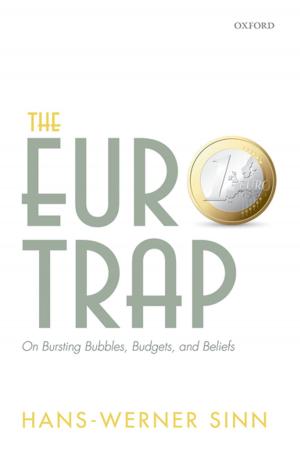| Author: | David Cottington | ISBN: | 9780191642555 |
| Publisher: | OUP Oxford | Publication: | January 31, 2013 |
| Imprint: | OUP Oxford | Language: | English |
| Author: | David Cottington |
| ISBN: | 9780191642555 |
| Publisher: | OUP Oxford |
| Publication: | January 31, 2013 |
| Imprint: | OUP Oxford |
| Language: | English |
'The avant-garde' is perhaps the most important and influential concept in the history of modern culture. For over a hundred years it has governed critical and historical assessment of the quality and significance of an artist or a work of art, in any medium-if these have been judged to be 'avant-garde', then they have been worthy of consideration. If not, then by and large they have not, and neither critics nor historians have paid them much attention. In short, modern art is and has been whatever the 'avant-garde' has made, or has said it is. But very little attempt has been made to explore why 'the avant-garde' carries so much authority, or how it came to do so. What is more, the term remains a difficult one to define, and is often used in a variety of ways. What is the relation between 'the avant-garde' — that is, the social entity (the 'club') — and 'avant-garde' qualities in a work of art (or design, or architecture, or any other cultural product)? What does 'avant-gardism mean? Moreover, now that contemporary art seems to have broken all taboos and is at the centre of a billion-pound art market, is there still an 'avant-garde'? If so, what is the point of it and who are the artists concerned? In this Very Short Introduction, David Cottington explores the concept of the 'avant-garde' and examines its wider context through the development of western modernity, capitalist culture, and the global impact of both. ABOUT THE SERIES: The Very Short Introductions series from Oxford University Press contains hundreds of titles in almost every subject area. These pocket-sized books are the perfect way to get ahead in a new subject quickly. Our expert authors combine facts, analysis, perspective, new ideas, and enthusiasm to make interesting and challenging topics highly readable.
'The avant-garde' is perhaps the most important and influential concept in the history of modern culture. For over a hundred years it has governed critical and historical assessment of the quality and significance of an artist or a work of art, in any medium-if these have been judged to be 'avant-garde', then they have been worthy of consideration. If not, then by and large they have not, and neither critics nor historians have paid them much attention. In short, modern art is and has been whatever the 'avant-garde' has made, or has said it is. But very little attempt has been made to explore why 'the avant-garde' carries so much authority, or how it came to do so. What is more, the term remains a difficult one to define, and is often used in a variety of ways. What is the relation between 'the avant-garde' — that is, the social entity (the 'club') — and 'avant-garde' qualities in a work of art (or design, or architecture, or any other cultural product)? What does 'avant-gardism mean? Moreover, now that contemporary art seems to have broken all taboos and is at the centre of a billion-pound art market, is there still an 'avant-garde'? If so, what is the point of it and who are the artists concerned? In this Very Short Introduction, David Cottington explores the concept of the 'avant-garde' and examines its wider context through the development of western modernity, capitalist culture, and the global impact of both. ABOUT THE SERIES: The Very Short Introductions series from Oxford University Press contains hundreds of titles in almost every subject area. These pocket-sized books are the perfect way to get ahead in a new subject quickly. Our expert authors combine facts, analysis, perspective, new ideas, and enthusiasm to make interesting and challenging topics highly readable.















